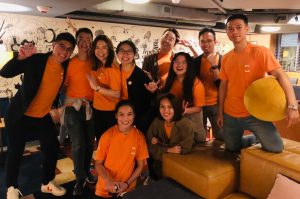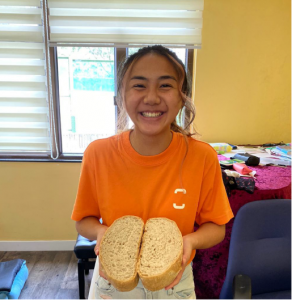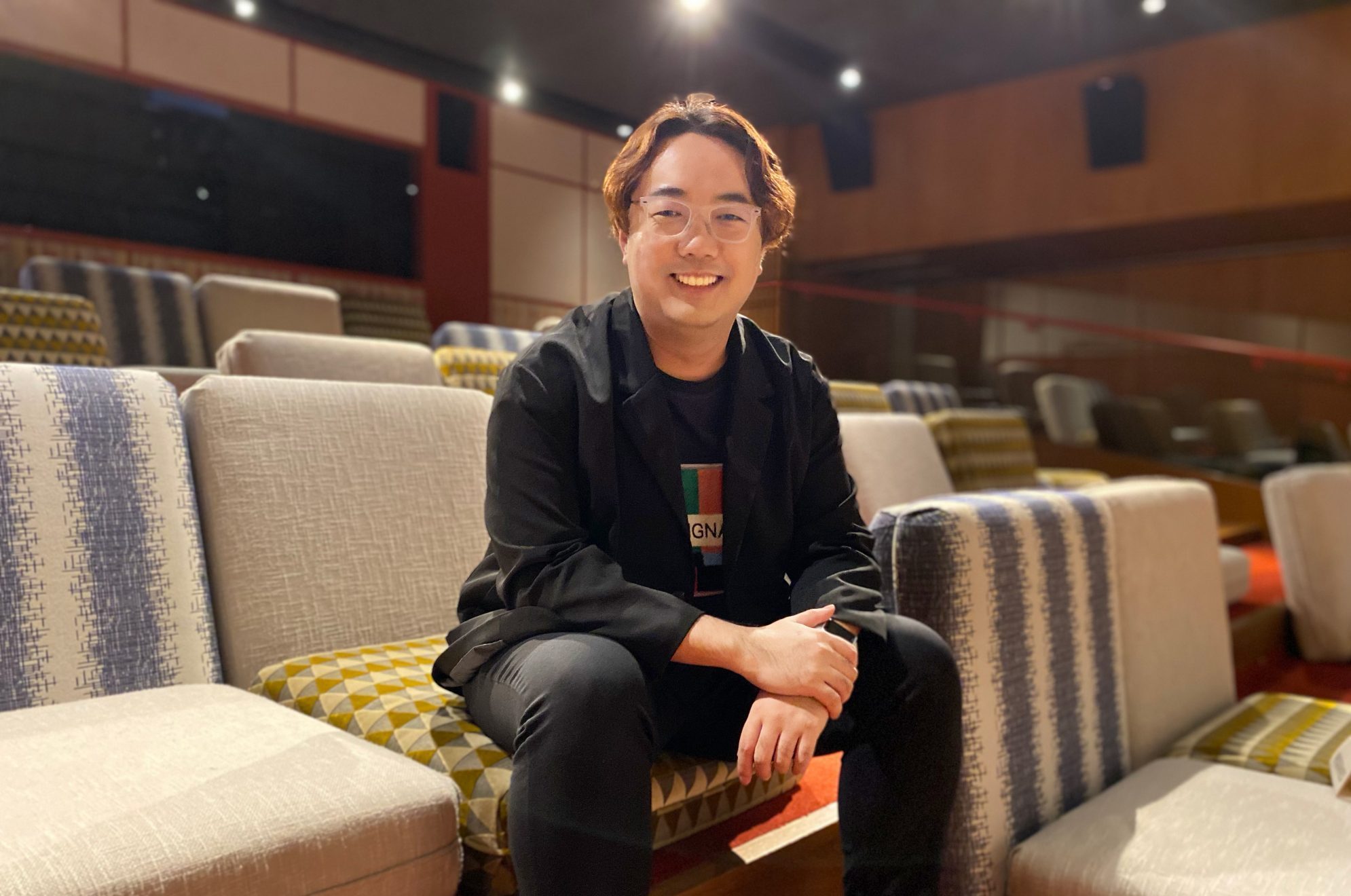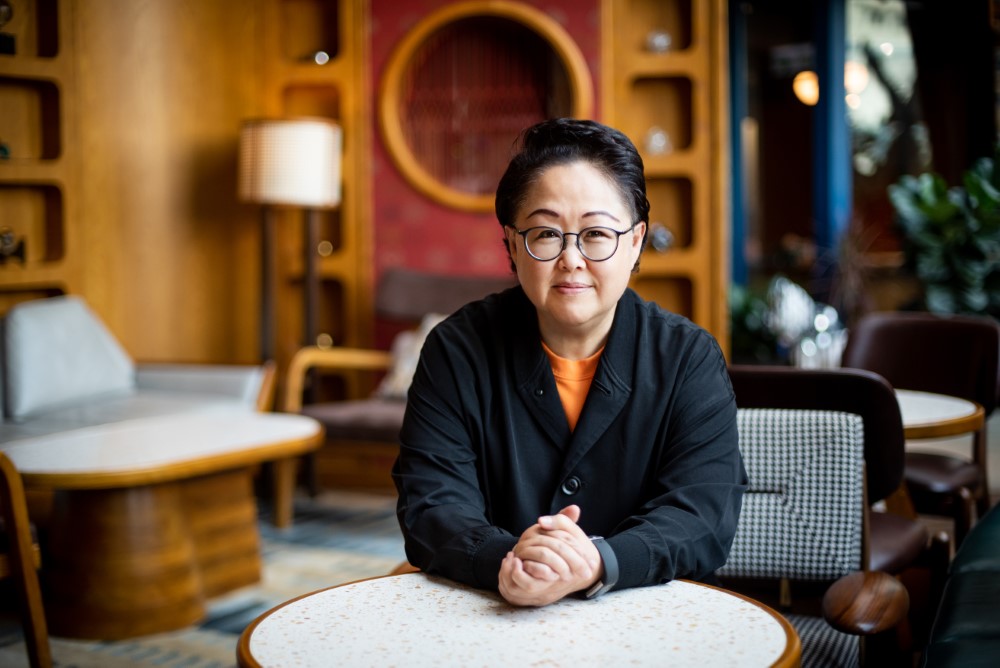Interview with Andrew Tsui of Time to Grow
Urban Farming is becoming one of the new trends in town. What is urban farming? Why do we need this? Is it possible to do urban farming in Hong Kong? How does one start a journey into urban farming?
To answer these questions, we interviewed Good Lab member Andrew Tsui. Andrew is founder of Time to Grow, a consultancy for urban farming in Hong Kong. Andrew has some unique insight and understanding of urban farming which focus on not just the green aspect. Want to learn more? Read on –
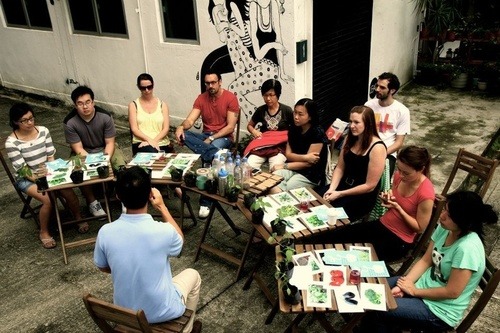
GL = Good Lab, AT = Andrew Tsui
GL: Hi Andrew, can you share how you stumbled upon this interesting journey?
AT: We are connected through a social entrepreneur group initiated by Mr KK Tse. Among the participants, there are quite a few people who are ardent followers of permaculture. But back then, I have very little knowledge of urban farming, but i was curious to learn.
GL: So you started from zero?
AT: Oh yes, it was quite a learning experience. Actually I was lucky to have my teammates with complementing Skill sets interests in different fields, from environment to food safety and food security and others. Working as a team, we can get a more complete picture.
GL: so what exactly is urban farming? Is it a fad or a real thing?
AT: Urban farming is a global phenomenon that is happening all over the globe. Some cities/countries that are pioneering urban farming include New York, Detroit and Havana, Cuba.
- For example, Havana has almost 200 urban allotments providing four million tonnes of vegetables every year – helping the country to become 90% self-sufficient in fruit and vegetables.
- Detroit is another fascinating case of how urban farming has turned the city’s landscape upside-down. Today, there are more than 1,200 community gardens in Detroit—more per square mile and more per capita than in any other American city!
- Places like Vancouver, Japan, Western Europe and the States in general are BIG on urban farming. In Hong Kong, we are finding innovative ways for urban farming to exist and grow.
GL: You mentioned that there is a trend of urban farming in Hong Kong. Why is that? Why are people craving after this?
AT: Well, most people in Hong Kong become interested at this not because they want to make a living out of growing vegetables in the field – it is almost impossible with no eco system supporting. Most people get into this hobby because they know that they can create a lot of fun and pleasure for themselves and others working through urban farming, and their passion infected their friends and relatives.
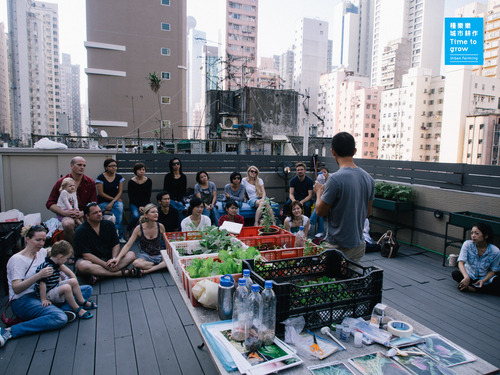
GL: How does that work actually?
AT: We at Time to Grow see ourselves as a platform in growing the eco system with 3 main impacts:
- Transforming idling urban space into urban edible gardens.
- Engage city dwellers through education and workshops towards sustainable living.
- Connect and collaborate with local farmers and suppliers to grow the platform (eco system)
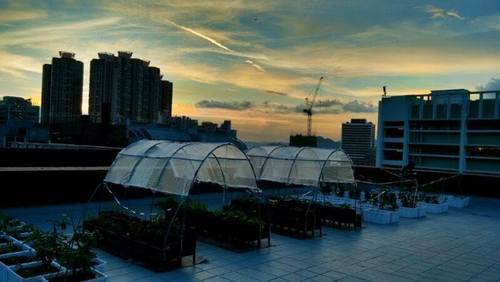
sharing rather than possession
GL: Can you give us a specific example of an urban farm that Time to Grow help started?
AT: We worked with an NGO (Feeding Hong Kong )on a rooftop farm at School of Creativity last year. We work out the proposal together with the NGO and provide the professional consultation in the process including design and built. The NGO obtained the funding and then contacted two schools to host the project on their rooftops. It made possible for us to do workshops for them and the students. While the produce would be donated to the NGO
One of the ideas that we want to spread through our work is that it is more important to put the emphasis on the idea of sharing, rather than possession. Most Hong Kong people today would think about consuming and possessing at every stage in their life. But if everyone of us think in this fashion, we will have very siloed life, because our space is too scarce, and our resources is limited.
That’s why we are advocating for sharing. You share the land, or the rooftop, or the food produced, with your friends, colleagues, or neighborhood people. It strengthens the link between people when you share. We often said that what we do is not about green, not about slow life, but about engaging with the community.
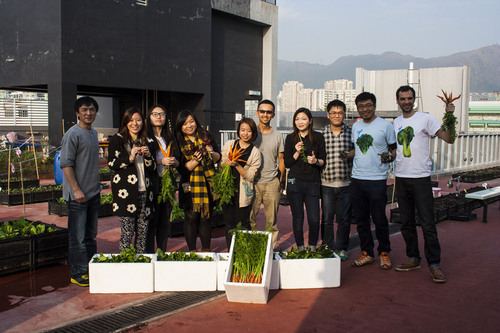
it’s about social engagement
GL: Can you elaborate on how you engage with communities?
AT: We do workshops at schools, or residential building, or industrial buildings, regardless of where the workshops are held, the goal is the same. We bring people together to work on the farm, which is fun and engaging, and people would enjoy such a process.
AT: It is also about building social capital for people. We notice that social capital has been dwindling since HK. It is in a sense an inevitable phenomenon with the urbanization process where people’s life are compartmentalized for better efficiency. And people are losing their social capital. We want to solve this issue with our program and help solve this problem.
GL: Can you describe how you work with different parties to make this work?
AT: Our main role in the process is to empower people. Because in an urban city like Hong Kong, it is difficult to find land ready for gardening. But then on the other hand, everyone has this urge deep inside that they want to connect with nature.
If you look deep into the issue, you will find that it is an issue about space. We know that in fact there are quite a lot of idling spaces in the city, it could be some rooftop, some space in schools, or some untapped land in suburban area. But because nobody is actively using these land, they are left idling there.
Our solution is to connect the land owners with urban farmers, and bring in a win-win situation for both parties. Some corporates love our approach and our workshop with their staff have been well received.
GL: Are there any challenges in the process of promoting urban farming in HK?
AT: It is what I call the “instant noodle” mentality which city dwellers shares in common. There are things in life that take time to properly develop and mature. there is just no short cut to it. Isn’t that an reflection on what nature can teach us all something about life?
GL: What can I do if I want to engage in such activities?
AT: Well best way I would say is to start with getting connected with the community that shares this vision. Join a workshop if possible, ideally Time To Grow one (: p) but really we are just happy to see such awareness and community grow in the city.
If condition permits, do feel free to volunteer with us or even invest into a farm yourself and try growing your own food. We promise you that’s going to be a great experience.























 Hands-on Experience
Hands-on Experience 

